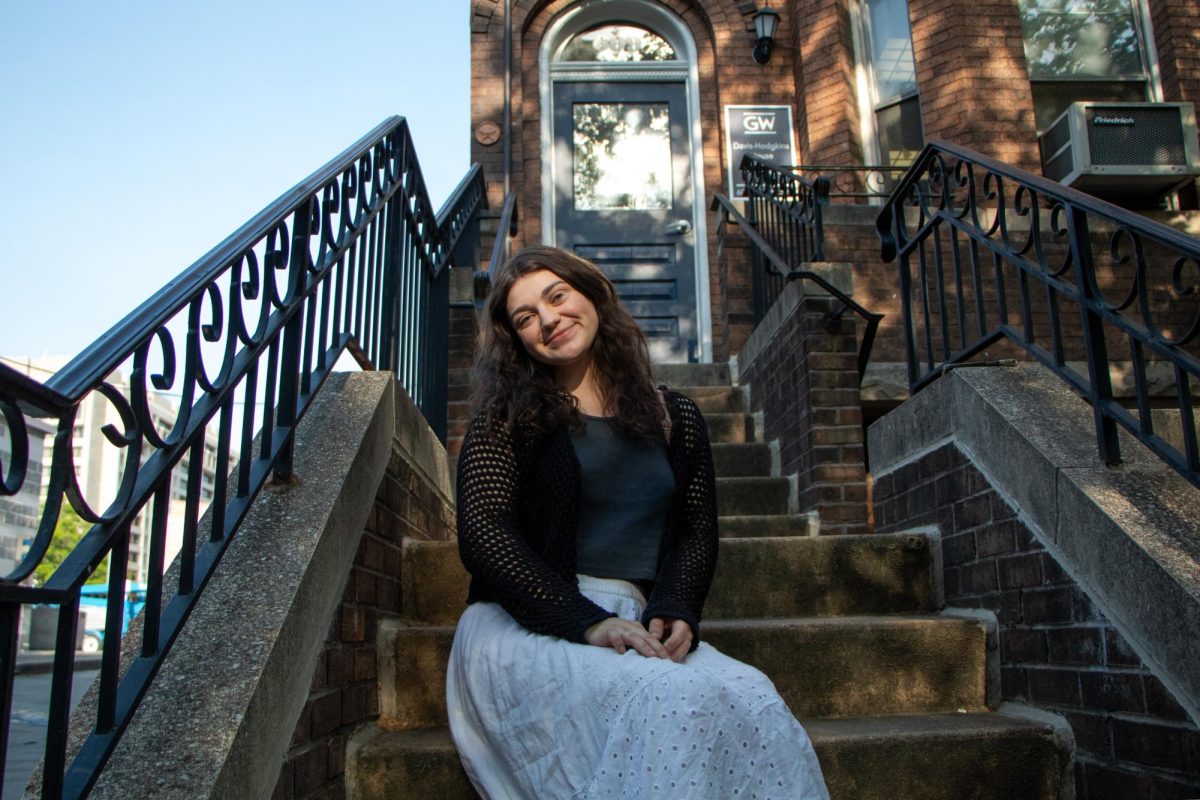Jody Grossman has been playing the harp for 30 years. But after growing tired of playing for weddings and other ceremonies, she decided to take her music in a more unlikely direction – performing in emergency rooms.
Every Wednesday afternoon, Grossman plays her harp at the GW Hospital’s Emergency Department. With a desire to bring her love of music to a medical environment, Grossman said she believes that music has a calming effect on patients, who are often irritable due to pain.
The story of how she got here is not what one might expect. After she came to play the harp for a parent of a student in her kindergarten class, doctors and nurses took note of her skills. Many approached her while she played and left their cards, hoping to discuss the chance of having playing on a regular basis.
At first, Grossman didn’t play very often. “Hospitals change slowly,” as she put it. She would come in to play on rare occasion over the course of a few months.
Then, unexpectedly, a beloved nurse passed away and Grossman was called on to provide music for a gathering. Immediately following, a doctor on the Board of Directors approached Grossman and suggested that she should be hired to play on a weekly basis.
“I never expected it,” she said. “I was thrilled!”
Starting officially in November of 2007, Grossman was originally assigned to play in the hospital’s lobby, Grossman quickly moved to the Emergency Department’s waiting room. When she first started playing there, some of the staff and patients felt her music was overstimulating. But the doctors in the department ensured that her stay would be permanent.
The emergency department, a small and very busy place with a huge number of patients coming in and out on a daily basis, can be somewhat frenetic, Grossman said.
“I feel like people are buzzing around, but after about 45 minutes people slow down and it gets quiet and calm.”
Despite her music’s overall soothing nature, Grossman still finds it important to be sensitive to patients who do not welcome the sound.
“Some of them just cannot take the music and I’ll have to go play somewhere else, which is rare, but it happens,” she said.
Nevertheless, there are those who take refuge in Grossman’s playing. Grossman once spotted a 7-year-old girl crying in front of the intensive care unit and, harp in hand, approached her to ask if she would like to play. The girl, who said that she had never played the harp before, instantly placed her worries aside.
“Her eyes just lit up,” said Grossman.
While she strives to calm patients and their families, Grossman also hopes that her playing will enable staff members to weather the day-to-day stresses of working in a hospital setting.
“I wanted to do what I could to alleviate stress,” she said. This is why she hopes to play during surgeries, to soothe doctors as well.
Grossman believes that there is a real place for her music at the hospital, where technology and bureaucracy frequently overwhelm patients’ emotional needs.
While she cannot cure patients, she hopes her music will provide a more nurturing and personal touch. Too often, she says, “we forget the human element in medicine.”




